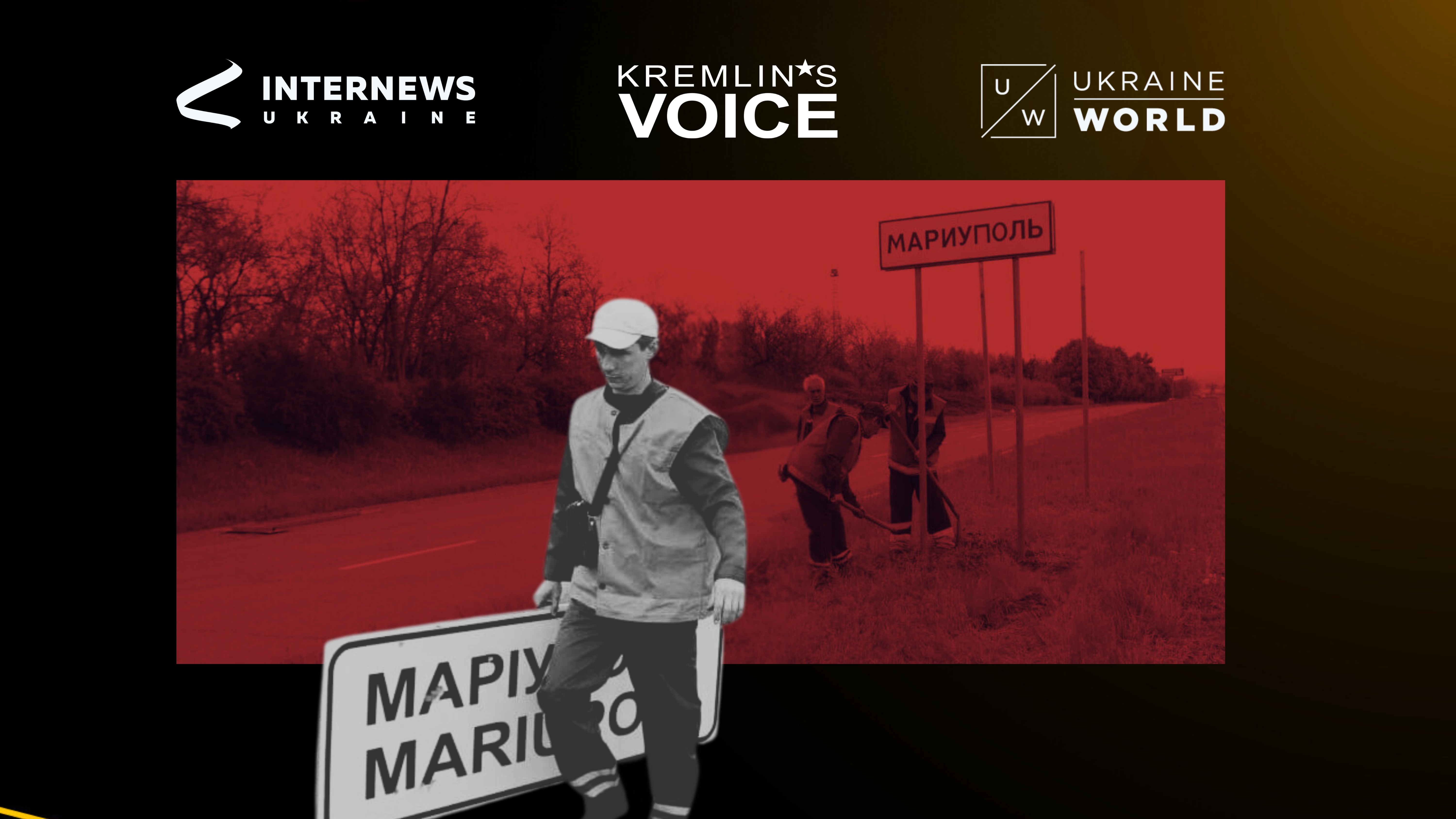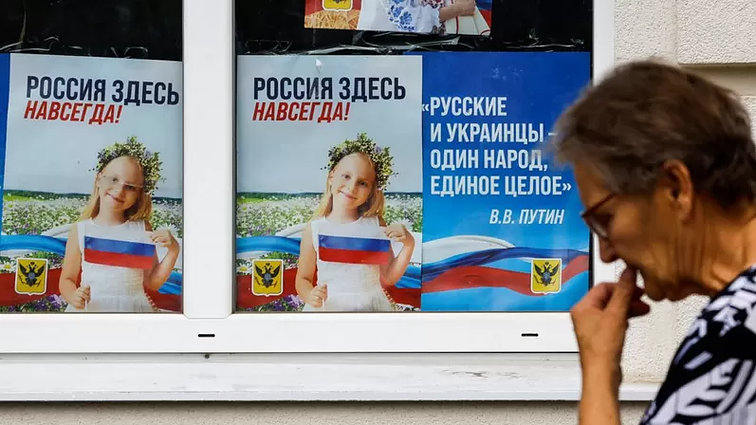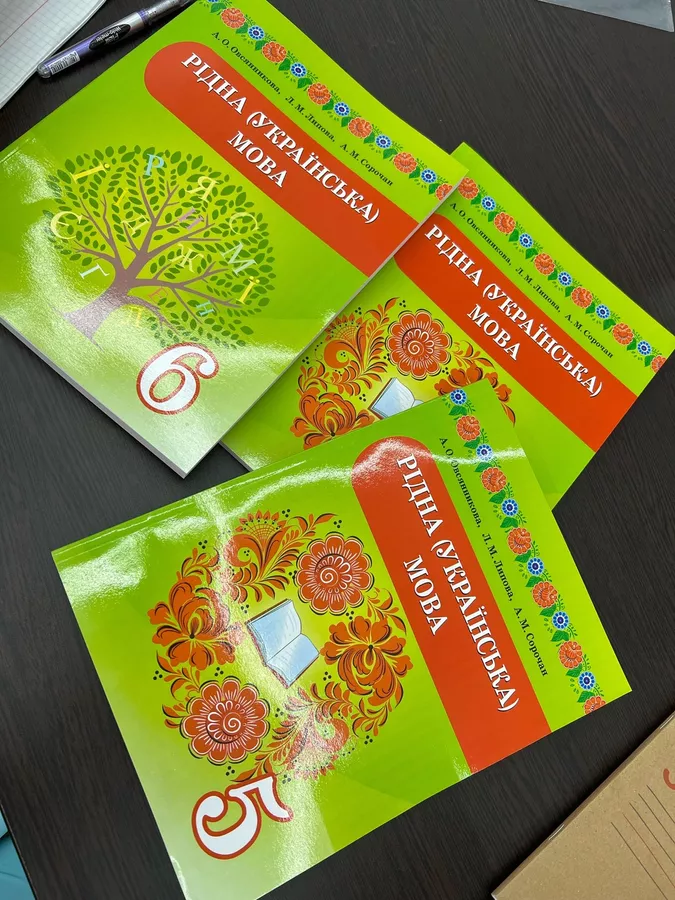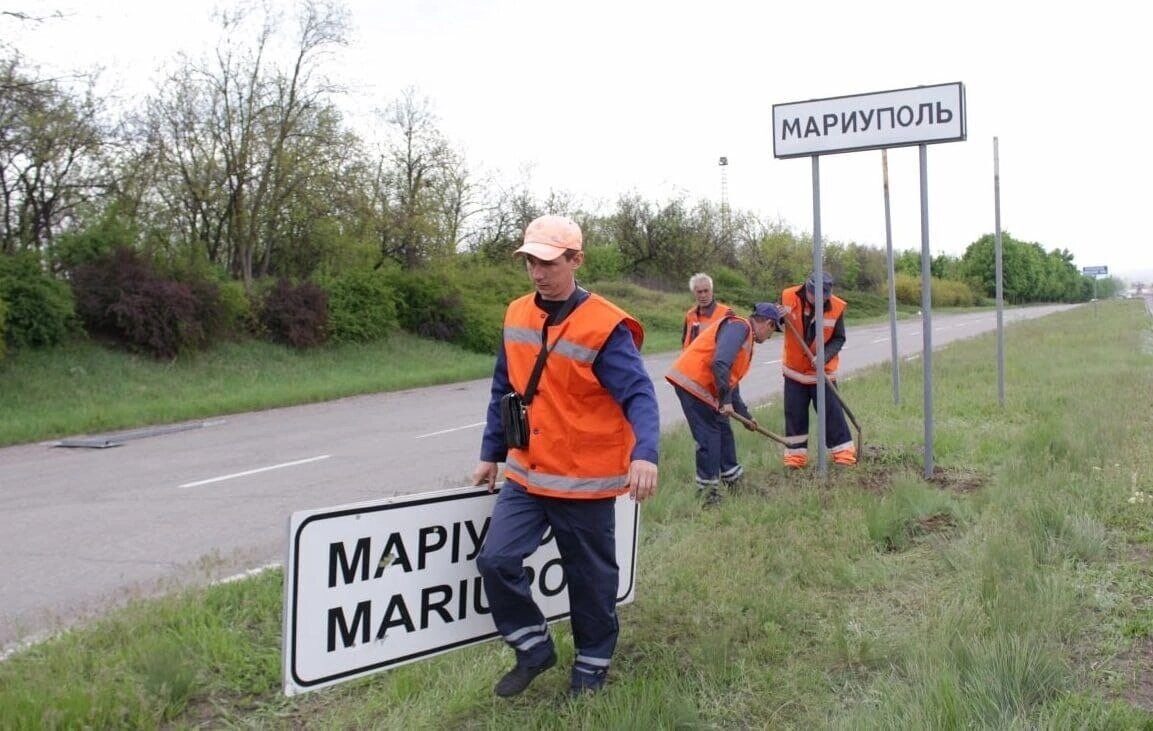
As it prepared for and carried out its full-scale invasion of Ukraine, Russia's official ethnopolitical approach to the country underwent a serious change. Since the Soviet times, the Russian mainstream had formally recognized Ukrainians as a separate nation with its own language (albeit often not as equals but only as a "younger brother" in an "unbreakable union" with Russia and Belarus).
However, speculations about the "artificial" nature of the Ukrainian nation always circulated underneath the surface. Then, they were endorsed at the highest level. In 2020, Putin stated that the "Austrian secret services played the Ukrainian factor on the eve of WWI."
In 2021, he published an essay on the "historical unity of Ukrainians and Russians," where he argued that Ukraine as a country had been created by Lenin. These statements reflect the deep inherent contradiction of modern Russia which praises the Soviet legacy while at the same time returning to the old Tsarist policy of denying the existence of Ukrainian nationhood.

Since 2022, Russian public discourse has been denying the existence of the Ukrainian people and calling for the extermination of everything Ukrainian. Given that the Russian media is strictly controlled by the state, their contributions to this genocidal rhetoric are clearly sanctioned and even encouraged. You can find numerous examples of it in our Kremlin's Voice database.
Paradoxically, Russia tries to have its cake and eat it, too. On the one hand, it denies anything Ukrainian and eradicates it wherever it reaches. On the other hand, for the sake of appearances, it tries to construct a "convenient" Ukrainian identity. The main matter here is (and historically has been) the Ukrainian language.
Russia portrays itself as the savior of Ukraine while in fact fighting to destroy the country. In this perverted logic, Russia wants to preserve "true" Ukrainian culture in contrast to that "spoiled" by foreign influences under the "Kyiv regime."
In August 2022, Russian Minister of Education Sergey Kravtsov told at a meeting with Vladimir Putin that the Ministry was developing a textbook on the "classical" Ukrainian language.
In September 2022, Russian MP Evgeny Fyodorov sent an official appeal to Kravtsov to go even further and establish an institute which would regulate the norms of the Ukrainian language "in order to preserve the Ukrainian language and reduce artificial, politically-biased influences upon it." The institute was not created, but this trend continued.
In April 2023, Russian Deputy Minister of Education Alexandr Bugayev reported that a Ukrainian language textbook for elementary schools was ready and that they had begun preparing a textbook for middle schools, noting that education in the occupied territories is to be held in Russian, but that Ukrainian language could be taught as an elective course "similarly to other languages of the peoples of the Russian Federation." What interests us here is the ideological framing of this initiative, the institutional policies behind it and reactions from Russian public figures.

Bugayev stated: "We are preparing a textbook that will truly reflect all the beauty and the purity of the traditional Ukrainian language, which was studied in the Soviet period in our best pedagogical traditions."
It appears that Russian officials were bothered by the recent reintroduction of certain norms from the 1928 Ukrainian orthography (whose authors were mostly repressed in the 1930s and which was forcefully replaced with a new orthography in 1933 to bring Ukrainian closer to Russian during the large-scale Stalinist terror). This was the logic expressed by Elena Panina, a long-standing Russian MP and now the Director of the Institute of International Political and Economic Strategies. "Why do we need a Ukrainian language textbook? To remove the distance between its speakers and Russians", she explained, adding that the new textbook was a serious step towards the "denazification" of Ukraine.
Russian officials also appear irritated by modern Ukrainian's practice of adding feminizing suffixes to certain nouns (particularly ones for people of certain professions or characteristics to denote a woman who fits that description, similar to -ess in English). This practice is so disturbing to Russian authorities that the Russian Supreme Court described it as an indication of the "LGBT movement" in their ruling designating the movement as "extremist."
In general, Ukrainian spoken today does not differ dramatically from the literary standard language of Soviet times, so these statements by Russian officials are more a matter of bombast. But it is essential to note that all of this outrage about the features of the Ukrainian language come from officials who do not speak it, yet proclaim to know how the language is authentically spoken.
While the content of Russia's new Ukrainian language textbook for elementary schools was not available, we did manage to find a program approved by the Russian Ministry of Education in 2022 and prepared in Moscow by the Institute of Native Languages of Peoples of the Russian Federation. The explanatory note declares the aim of the program to make pupils "aware of their ethnocultural and Russian civic identity." The Ukrainian language is described as "part of the history and culture of Russia."
Again, it is an open question whether children can freely choose to study the Ukrainian language in the occupied territories, given Russia's overbearing propaganda insisting that these lands have always been Russian and the atmosphere of total suspicion towards any pro-Ukrainian sentiment.
For example, in 2022, a woman named Olha Dyachenko from Crimea was reportedly arrested and prosecuted for having her nails painted blue and yellow, while in June 2024, a Russian pro-war blogger boasted about sending a woman to a torture chamber for speaking Ukrainian in Berdyansk).
The idea that Russia is Ukrainians' second motherland was summarized by Deputy Head of the State Duma Committee on Economic Policy Stanislav Naumov. In October 2022, he stated:
"Our position is similar to that of President Vladimir Putin regarding the Ukrainian language in new territories. It must be formulated this way: the Russian Federation is one of two states where Ukrainians live. There are many similar examples in world history - Germany and Austria, South and North Korea."
Some Russian public figures like film director Nikita Mikhalkov and Member of the Moscow Duma Andrey Medvedev have spoken out categorically against such initiatives. Medvedev described it as the state showing "bipolar" behavior, arguing:
"With one hand we are fighting this 'Lenin-built' Ukraine, with the other we are strengthening it."

This article focuses mainly on official statements by Russian officials in order to understand their logic in flirting with Ukrainian identity. The real situation on the ground requires thorough research and a separate text. However, in short, the clearest evidence of Russia's intentions towards Ukrainian language and culture comes from the fate of the territories which Russia occupied in 2014, where the Ukrainian identity was virtually banned and eradicated.
Russia is ready to see Ukraine only as a subjugated territory with its language and culture confined to a Moscow-approved box of decorative anachronisms, as with the indigenous peoples of Russia or Lukashenko's Belarus. This policy amounts to a path towards the near extinction of Ukrainian nationhood wherever Russia has control.
The article was originally published on the Kremlin's Voice platform.
